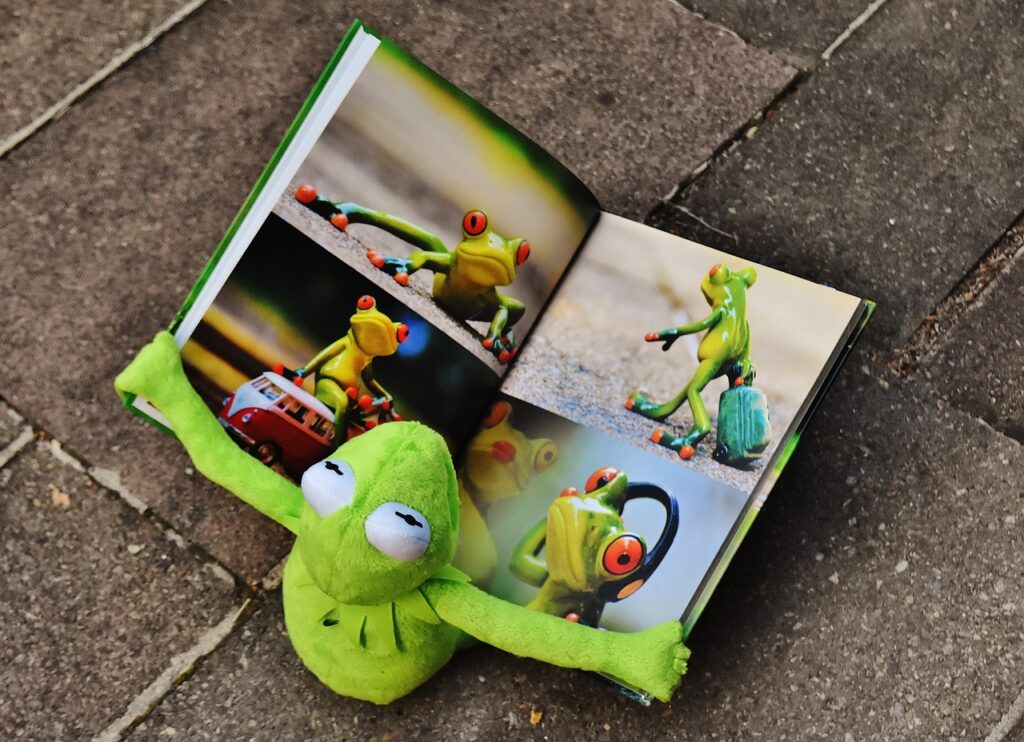The words I picked for this vocabulary post are commonly referred to as part of the “minimum vocabulary” (Лексический минимум) for C1 learners (the third proficiency level for Russian as a Foreign Language certificates). You might think that higher levels require increasingly difficult vocabulary, but today’s words are actually quite simple to learn and might already have familiar root words. All you need to understand is how these words are formed.
All the words in the list begin with the prefix без- (phonetic variant бес-), meaning “without.” In general, it works similarly to the English suffix “-less,” except it goes before the root, not after.
These words are quite versatile, describing not only people but also ideas and even books. I’ll provide examples from (imaginary) book reviews as inspiration for using them to describe books you encounter in Russian.
If you think a novel lacks good taste, you can call it a безвкусный роман (“tasteless novel”). Вкус means ‘taste’ in Russian. Interestingly, when applied to food, this word simply means bland, lacking any taste. However, in its figurative sense related to fashion, architecture, or literature, it implies bad taste or vulgarity, rather than plainness.
— Последний роман Пелевина немного безвкусный, вычурный. (Pelevin’s latest novel is a bit tasteless and pretentious.)
Great literature often explores human nature. It takes courage for a writer to face the truth without filtering out unpleasant realities and convey them to readers. Here are some words to describe Vladimir Sorokin’s latest novel, “Наследие” (The Heritage):
- Беспристрастный (unbiased, dispassionate) from страсть – passion;
- Безжалостный (ruthless), from жалость – pity;
- Беспощадный (merciless), from пощада – mercy.
— Новый роман Владимира Сорокина – это беспристрастное, безжалостное и беспощадное описание общества, погруженного в насилие. (Vladimir Sorokin’s new novel is a dispassionate, ruthless, and merciless depiction of a society consumed by violence.)
The world that Sorokin describes in the novel is безрадостный (bleak, joyless).
— Все герои романа существуют в безрадостном, бесчеловечном мире. (All the characters in the novel exist in a bleak, inhuman world).
Sorokin as a writer is notorious for being бескомпромиссный (uncompromising). This word accurately translates to “uncompromising” or “inflexible,” meaning someone who adheres to their principles without compromise or sacrificing them for benefits. Some might also consider “unyielding” or “steadfast” suitable options.
Владимир Сорокин – это один из самых бескомпромиссных писателей современности. (Vladimir Sorokin is one of the most uncompromising writers of our time.)
Sometimes you read a novel and realize that the characters are underdeveloped, the story is incoherent, and the style leaves much to be desired. You might say that the book was беспомощная, helpless. Help in Russian is помощь, so беспомощный literally means helpless.
— Первая книга Достоевского была удивительно беспомощной. (Dostoyevsky’s first book was remarkably helpless).
When reality seems to outplay the darkest dystopia, I seek an escape in light-hearted humor. I think I am not alone in this. P.G. Woodhouse, a famous British author, created short humorous stories about a British aristocrat, Berty Wooster, and his witty butler, Jeeves, in the midst of the horrors of World War II, and his books helped many people get through the hard times. You can call this kind of humor безобидный, harmless. Обида means ‘offense,’ so безобидный is something or someone that does not offend.
— Безобидные шутки и языковая игра делают его книги особенно приятными. (Harmless jokes and wordplay make his books particularly entertaining)
If you are lucky enough to discover a book written by a real genius, you can say that the book is бесценная, invaluable, priceless. You may know the word цена, price, so бесценный is basically price-less.
Это бесценная книга, ставшая для многих писателей источником вдохновения. (It is an invaluable book that has been a source of inspiration for many writers.)
And if it is a classic book, which has proved to be a masterpiece for many generations of readers, you can say that it is бессмертная книга, an immortal book from смерть – death, mortality.
Илиада – это бессмертная поэма Античности. (The Iliad is the immortal poem of antiquity).
I hope you found these words and examples helpful! Don’t forget to download the vocabulary cards and don’t be afraid to explore the advanced vocabulary. As you can see, these words are often nothing more than a slightly embellished basic vocabulary.

